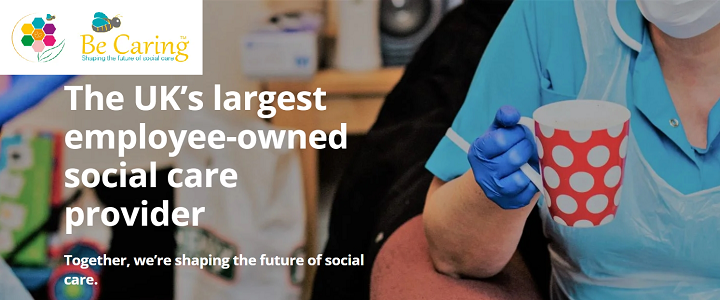Employee owned social care businesses have been growing rapidly in number overseas. More recently, Employee Ownership Trusts (EOT’s) have been entering this field, such as the UK’s now largest employee owned care provider Be Caring which has 800 employees. There are many similar outfits operating in social care in the UK. Australia will likely soon be following along the same path.
Over the past ten years, many private businesses in Australia have been formed to operate in the aged care and disability sectors (particularly in relation to the NDIS). These businesses have been set up by experienced operators who are now currently at the point of seeking to transition out from their ownership role. The value of EOT’s in this scenario will be that rather than a ‘mature’ business owner selling their company to a larger corporate, the EOT will provide an effective, employee focused business succession plan. As a result, as more business owners move towards an EOT, this will avoid the problem of a concentrated market, dominated by a few large corporations.
What is an EOT?
An EOT is a structure that is used to facilitate employee ownership of a company. Essentially, the trustee of the EOT holds a long term, significant sized shareholding in an operating company for the benefit of employees.
The structure does not depend upon specific shares being held by individual employees and no employee has any particular entitlement to any shares in the operating company. Rather, the EOT holds its rights and shares for the benefit of all present and future employees of the company. Accordingly, as beneficiaries of the EOT, the employees are indirect owners of the company.
The trustee of the EOT takes on a custodial role in relation to the conduct of the company and therefore has the power to exercise its share rights to ensure the underlying operating company is a successful, independent professionally managed trading company with an employee ownership ethos.
Benefits of the EOT in the social care sector
The main benefit of an EOT is that it can establish an effective succession arrangement for private sector aged care and in home support service businesses. In doing this, the EOT model provides a stable and long-term structure for employee ownership. Unlike direct share ownership, founders and employees do not face the pressure of needing to ‘cash out’ upon leaving the company. Rather, as owners ‘sell down’ their interest to the EOT, they are gradually rewarded through periodic payments. This form of deferred financing of the ownership conversion sidesteps the challenge of raising capital from employees or financial institutions – the challenge which bedevils the formation of other forms of mutual entities, not only as start-ups but also as a succession solution.
Importantly also, in implementing an EOT, this will not require public or private investment as the EOT is a self-financing model thus making the EOT a superior model for taking over existing private companies. However, existing large corporate entities would not be considered ideal candidates for transitioning to an EOT. Rather, it is the small to medium enterprise and family-owned businesses that will be the key market participants that could benefit from the use of an EOT.
EOTs increase economic benefits through employee ownership
EOTs are predicated on seeking greater employee representation. One way to enhance employee representation is the creation of an ‘employee council’. The employee council may be responsible for or, engaged in the appointment of employee directors to both the operating company and to the trustee of the EOT. By creating an employee council to elect employee representatives to the board of the EOT trustee, the EOT model provides a vehicle for employees to make their collective voice heard throughout the company. As a result, the EOT promotes greater engagement and talent in the company due to the employee centric ethos. In turn, this ensures employees are less likely to leave the company and are more likely to remain with their employer. Positive data on the impacts of employee ownership in economies everywhere well indicates its role in relation to ‘better wages and improved job security’.
Similarly, given the EOT model is primarily focused on its employees, it is important to note that the model ensures employees are offered direct, supervised and skilled employment as ‘care givers’. These workers are motivated and trained to perform as an employee for their employer and critically, as a care giver to their clients.
Where employers and employees collaborate to improve the performance of their business, they will jointly share the rewards from their efforts, including better job security, higher wages and improved career enhancement.
In conclusion, EOTs are broad, flexible, simple and cost-effective structures which would be well suited to the social care sector.
For more on this topic, see Employee Ownership Australia’s Submission on Employee Ownership in the Social Care Sector to the Australian Federal Government.

